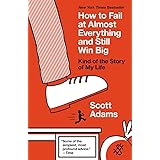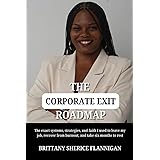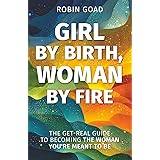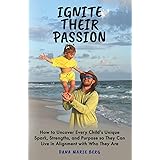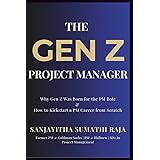The job interview process can often feel like navigating a minefield, fraught with nerves and uncertainty. Many professionals find themselves wondering how to truly stand out in a competitive talent market, moving beyond generic advice to make a lasting impression. Fortunately, understanding the employer’s perspective offers a unique advantage, transforming the daunting prospect of a job interview into a strategic opportunity.
The video above delves into three pivotal tips for absolutely crushing your next job interview, straight from an employer who has conducted hundreds, if not thousands, of interviews. These insights, categorized into ‘before,’ ‘during,’ and ‘after’ the interview, provide a roadmap for not just performing well, but genuinely excelling and separating yourself from the applicant pool.
Before the Interview: Mastering Strategic Research
The foundational step to a successful job interview begins long before you even step into the room: exhaustive research. As highlighted in the video, an employer is profoundly impressed by a candidate who has gone above and beyond to understand the company, its challenges, and its strategic trajectory. This isn’t merely about browsing the ‘About Us’ page; it’s about deep dives into corporate narratives, recent press releases, market position, and even the professional backgrounds of your interviewers.
Consider the example of a CFO candidate who impressed with his intricate knowledge of the company’s articles, stories, key personnel, and operational challenges. This level of diligence signals an inherent investigative nature and a proactive mindset, qualities highly valued in any senior role. For any professional seeking to elevate their interview preparation, this means dissecting annual reports, understanding competitor landscapes, identifying key industry trends, and analyzing leadership profiles on platforms like LinkedIn. Such detailed company intelligence demonstrates not only enthusiasm but also a strategic alignment with the organization’s goals.
A comprehensive understanding of the company’s culture and values, gleaned from sources like employee testimonials or corporate social responsibility reports, also allows you to tailor your responses. You can articulate how your skills and experiences directly address specific company needs or how your professional values resonate with their mission. This meticulous research separates you as a thoughtful, invested candidate rather than just another applicant, positioning you as a potential problem-solver from the outset of the job interview.
During the Interview: The Power of Authenticity and Candid Assessment
Once in the interview room, the inclination to “oversell” oneself can be strong, yet this approach often backfires, creating an impression of insincerity or, worse, dishonesty. The video emphasizes that genuine transparency builds credibility, fostering an immediate sense of trust with the interviewer. Rather than claiming expertise in every single area, a more effective strategy involves acknowledging what you don’t know while confidently articulating your core competencies and a growth mindset.
An honest admission, like “I don’t have extensive experience with this specific software, but I’m highly proficient in X, Y, and Z, and I’m known for being a very rapid learner,” is far more impactful. This shows self-awareness and a proactive approach to skill development, demonstrating that you can objectively assess your own capabilities. It communicates that you are a forthright individual who can be relied upon, reducing the perceived risk for the employer in the hiring decision.
Employers seek candidates who not only possess specific skills but also exhibit intellectual honesty and a willingness to continuously learn. This nuanced approach to discussing your skill set, combining humble self-assessment with enthusiastic confidence in your learning agility, speaks volumes about your character. It suggests you’ll be a dependable team member, eager to acquire new competencies to meet organizational demands, rather than someone who might lead to unpleasant surprises later on. This balanced display of confidence and candor is crucial for a successful job interview.
After the Interview: Leaving a Lasting Impression with Thoughtful Follow-Up
The post-interview phase, often overlooked, presents a critical opportunity to reinforce your candidacy and demonstrate unparalleled professionalism. The startling statistic from the video—only one out of seven highly qualified candidates sending a follow-up note—underscores just how impactful this simple gesture can be. This isn’t just about courtesy; it’s a strategic move to stand out in a crowded field and reiterate your strong interest in the position.
A well-crafted follow-up email, sent promptly, serves multiple purposes. It allows you to thank the interviewer for their time, reiterate key points discussed, and re-emphasize your unique value proposition. More importantly, it demonstrates your appreciation for their time and effort, signaling strong professional courtesy. The video’s example of the “most qualified” candidate sending a thoughtful, personalized note illustrates the significant psychological impact this has on the hiring panel, often swaying a decision in your favor.
Such a message, expressing genuine enthusiasm and highlighting specific ways you envision contributing value to the company, showcases your proactive engagement and strategic thinking. It subtly reminds the employer of your strong fit, potentially keeping you top-of-mind during internal discussions and talent acquisition meetings. In a competitive landscape where many candidates possess similar qualifications, this simple, yet powerful, act of professional follow-up can be the differentiating factor that secures a second interview or even a job offer. Master this often-neglected step to truly crush your next job interview.
Crush Your Interview: Your Questions Answered
Why is research important before a job interview?
Research helps you understand the company’s goals, challenges, and culture. It allows you to tailor your responses and show you’re a thoughtful, invested candidate.
What does it mean to be authentic during an interview?
Being authentic means being honest about your skills, even admitting what you don’t know, while confidently showing your strengths and willingness to learn. This builds trust with the interviewer.
Should I do anything after the job interview?
Yes, you should always send a thoughtful follow-up note or email promptly. This thanks the interviewer for their time and helps you stand out from other candidates.


